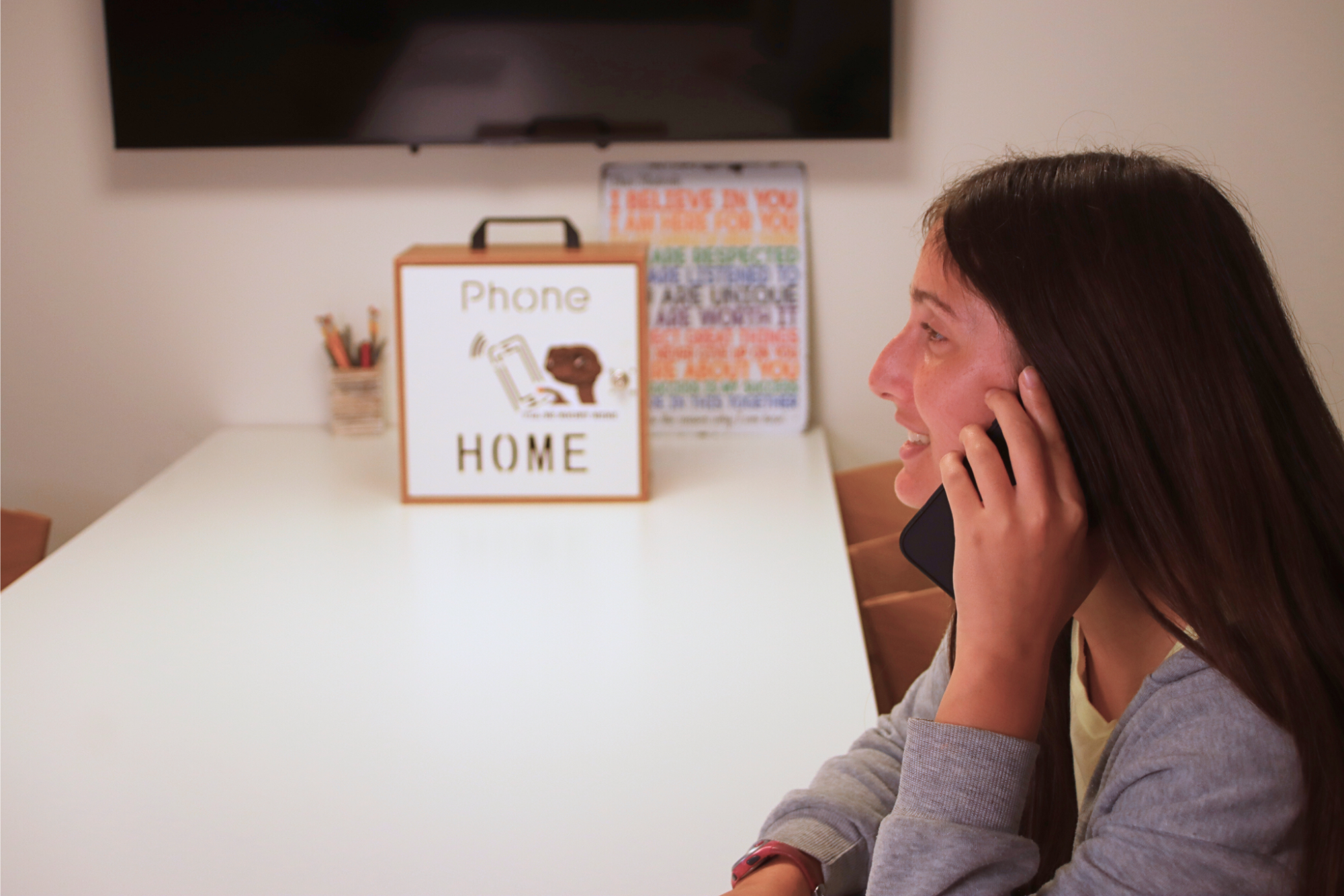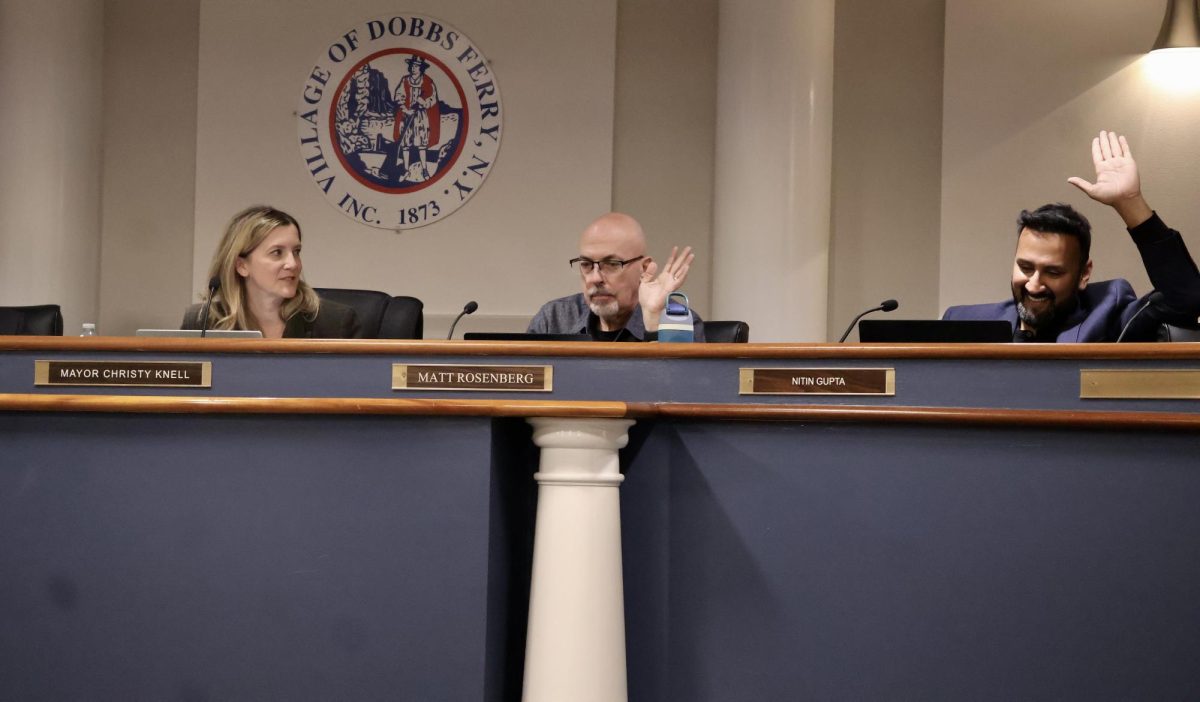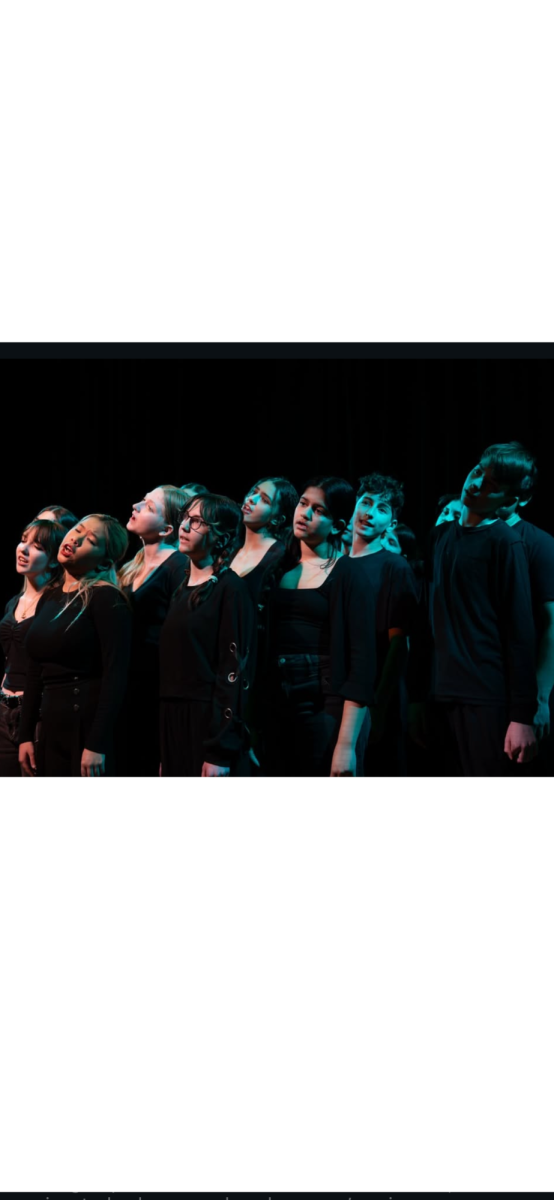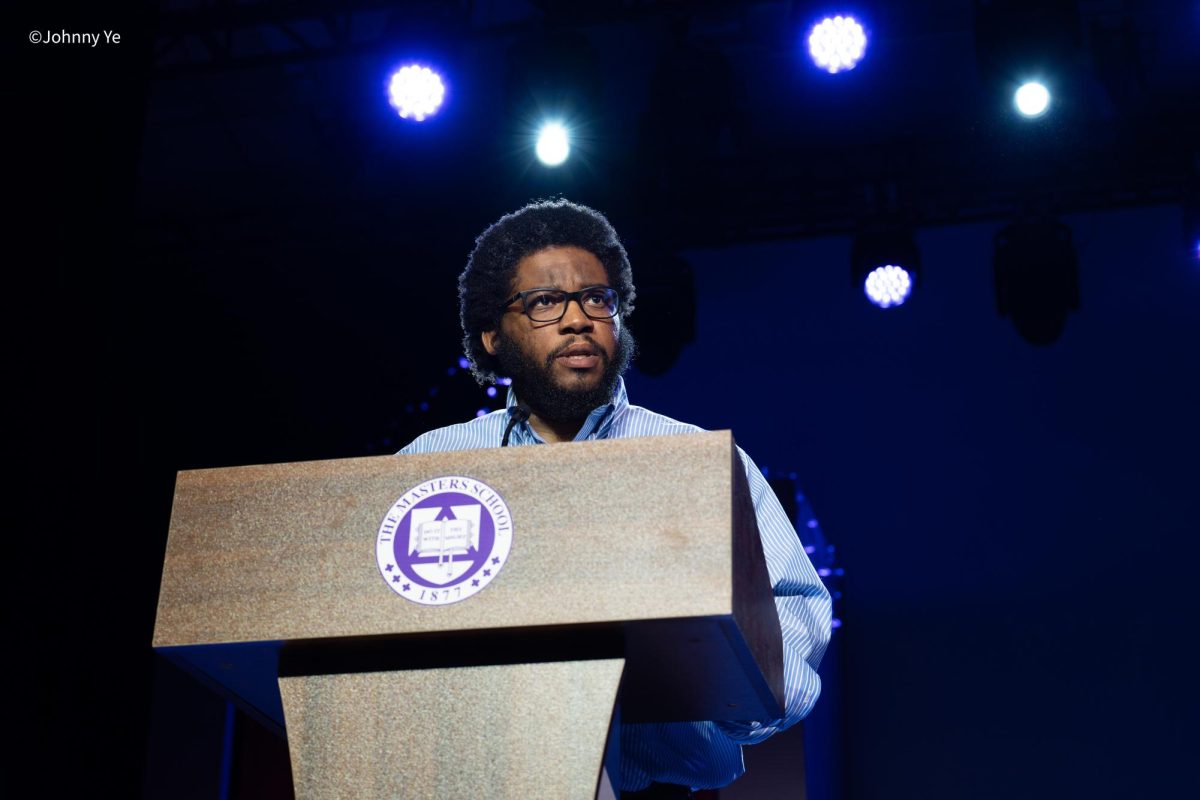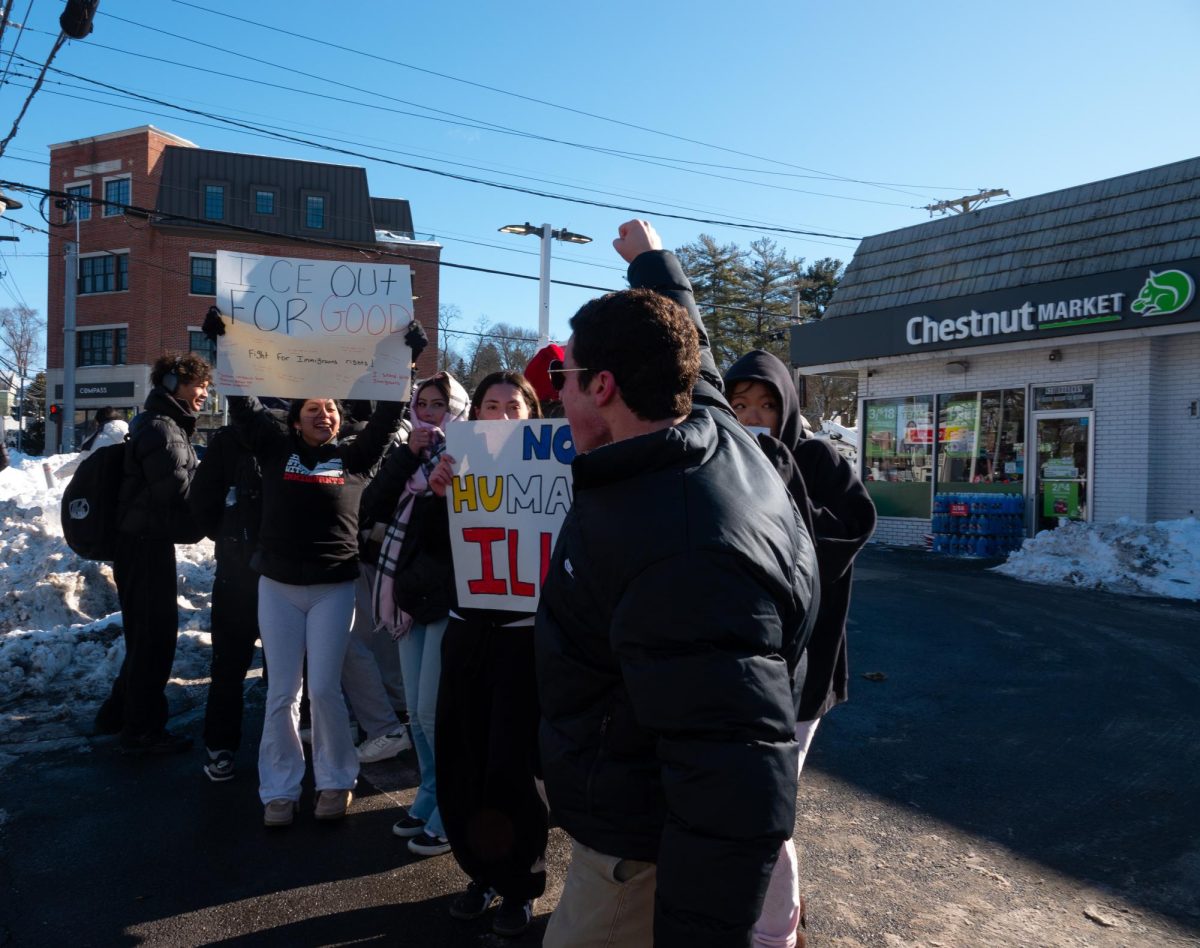Junior Willow Lovett walks up to the third floor of Masters Hall for her first class. Her schedule fully memorized for the rest of day, she glances up at the clock and is reassured that she made it to class on time. Lunch comes around and Willow reaches into her back pocket to text her friends, only to remember that she can’t. Eventually she finds her friends in the Dining Hall, and sits down to join a lively conversation.
Because of the new cell phone policy, Upper School students are no longer allowed to use their phones during the academic day. From 8:30 a.m. to 3:05 p.m., students are required to have their cellphones turned off and stored in their backpacks, left at home or in their dorm rooms. If a student is found using their phone, it will be taken and kept in the Dean’s Suite. They can then pick up their phone at 3:05 p.m.
Last year students were required to put their phones in special holders during class time but were allowed to use their phones in between classes or during a free period. However, the new phone policy disallows phones at all times during school hours.
Head of Upper School Peter Newcomb said, “Last year’s move to the cellphone holders was a good first step. It helped reduce use in classes, led to shorter bathroom breaks, and helped with overall distractions. It didn’t, however, address the impact that phone use throughout the day was having on our students and the missed opportunities to engage with one another.”
He continued, “One of the aims of the new policy is to improve the overall wellness of our students by reducing the amount of time spent on social media. There is a vast amount of research that all points to the detrimental impact that social media has, particularly on the developing brain. Another hope is rooted in our Mission Statement. The idea of ‘gathering’ requires us to be fully present with one another. This is challenging with the omnipresence of cellphones, and the programs that run on them, which are, by their nature, designed to promote engagement with the app.”
According to a survey by Pew Research, more than 70% of high school teachers say student phone distraction is a “major problem.”
Before coming to Masters, sophomore Zara Murray attended a school in Jamaica that had a similar but even harsher phone policy. If a teacher found a student on their phone, they would take the student’s phone away not just for the day but for the rest of the term. Murray believes that getting your phone taken away for a few hours at Masters is “a blessing” compared to several months.
Murray said, “It’s not a foreign feeling to me to not be able to access my phone, although I can see how it would be very hard for other students, especially with new schedules at the beginning of the year. But for me at least, I’ve found that I can work around it [not having a phone], but it is very tedious.”
As an international student, Murray has found that the most difficult part of not having a phone during school has been feeling disconnected to her family back home. She said, “When I was applying to boarding schools, one of the main things I wanted was to be able to use my phone throughout the day. I understand not using a phone in class unless it’s an emergency, but I’m far away from my family, and I just don’t like not being able to talk to somebody.”
Junior Nathalie Jansky shared her thoughts on the phone policy. “I surprisingly do like it. The policy has made me more productive during my free periods. I also remember walking around campus last year and noticing how everyone constantly looked down at their phones—it felt almost robotic. Regarding lunch, it seems like the policy forces people to connect rather than just defaulting to their phones out of boredom.”
Despite some complaints, Newcomb reports overall satisfaction with the new phone policy. “Surprisingly, I have heard only positive things from students and faculty, ranging from greater engagement in class, students feeling less pressure to be on their phone, since nobody else is. It has only been a week, but I am hopeful that the positive experience that people seem to be having continues,” said Newcomb.




